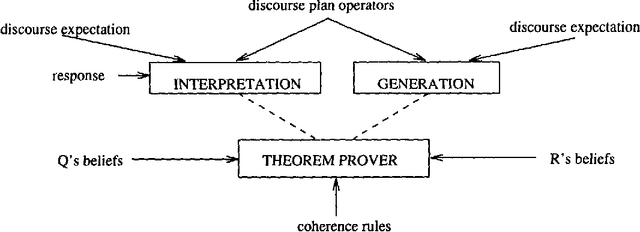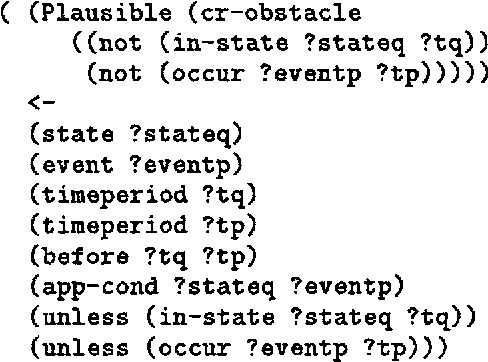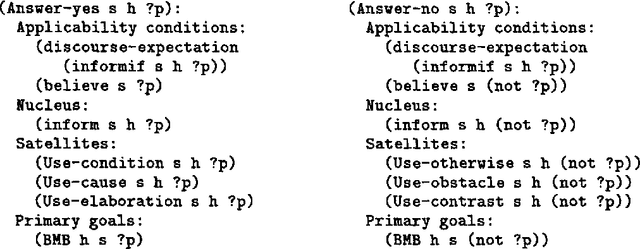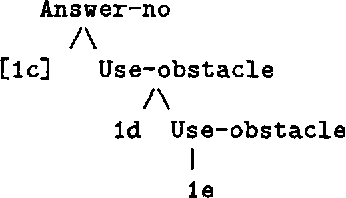A Hybrid Reasoning Model for Indirect Answers
Paper and Code
Jun 07, 1994



This paper presents our implemented computational model for interpreting and generating indirect answers to Yes-No questions. Its main features are 1) a discourse-plan-based approach to implicature, 2) a reversible architecture for generation and interpretation, 3) a hybrid reasoning model that employs both plan inference and logical inference, and 4) use of stimulus conditions to model a speaker's motivation for providing appropriate, unrequested information. The model handles a wider range of types of indirect answers than previous computational models and has several significant advantages.
* To appear in Proc. of ACL-94. 8 pages, uuencoded compressed
Postscript file; extract with Unix uudecode and uncompress. Contact Author
for latex version
 Add to Chrome
Add to Chrome Add to Firefox
Add to Firefox Add to Edge
Add to Edge